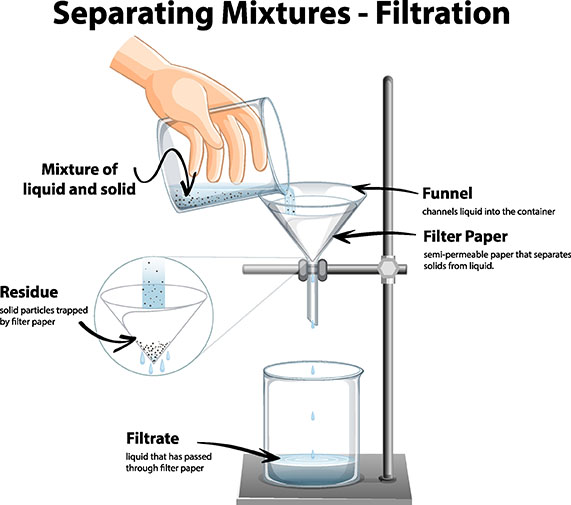
funnel
Definition
A funnel is a simple machine that is used to direct the flow of fluids or granular materials. It is typically made of a cone-shaped piece of metal or plastic with a wide mouth and a small opening at the bottom.
The funnel works by using the principle of gravity. When the liquid or powder is poured into the wide mouth of the funnel, it flows down the sides of the cone and into the small opening at the bottom. The small opening prevents the liquid or powder from spilling out of the funnel.
Funnels are used in a wide variety of applications, including:
- Cooking: Pouring ingredients into jars or bottles
- Cleaning: Pouring cleaning solutions into small bottles
- Science experiments: Pouring liquids or powders into test tubes or beakers
- Industrial applications: Pouring liquids or powders into machines
Funnels are an important tool that can be used in a variety of situations. They are simple to use and effective at preventing spills.
How can the word be used?
The chemist used a funnel to pour the liquid into the flask.

Different forms of the word
Noun: funnel, funnels.
Verb: funnel, funneled, funneling.
Adjective: funnel-shaped.
Etymology
The word "funnel" comes from the Middle English word funel, which also means "funnel". The Middle English word funel is derived from the Old French word funnel, which also means "funnel". The Old French word funnel is ultimately derived from the Latin word fundus, which means "bottom" or "base".
Question
When might you use a funnel?
AQA Science Exam Question and Answer
Question:
Explain the scientific principle behind the shape of a funnel and how it facilitates various processes in everyday life.
Answer:
The shape of a funnel is designed based on the scientific principle of fluid dynamics and the concept of decreasing cross-sectional area. The wide opening at the top gradually narrows down towards the bottom, creating a funnel-like structure. This tapered design allows for efficient redirection and control of fluids, such as liquids and powders.
In everyday life, funnels find versatile applications. They are commonly used in the kitchen for transferring liquids from one container to another, preventing spills and wastage. Additionally, in laboratories, funnels aid in precise pouring and filtering processes. The unique shape of funnels also plays a role in engineering applications, facilitating the controlled flow of fluids in machinery and systems.
Overall, the conical shape of a funnel maximises the smooth flow of substances, making it an indispensable tool in various fields and activities where precision and controlled transfer of materials are required.